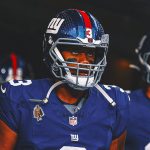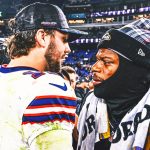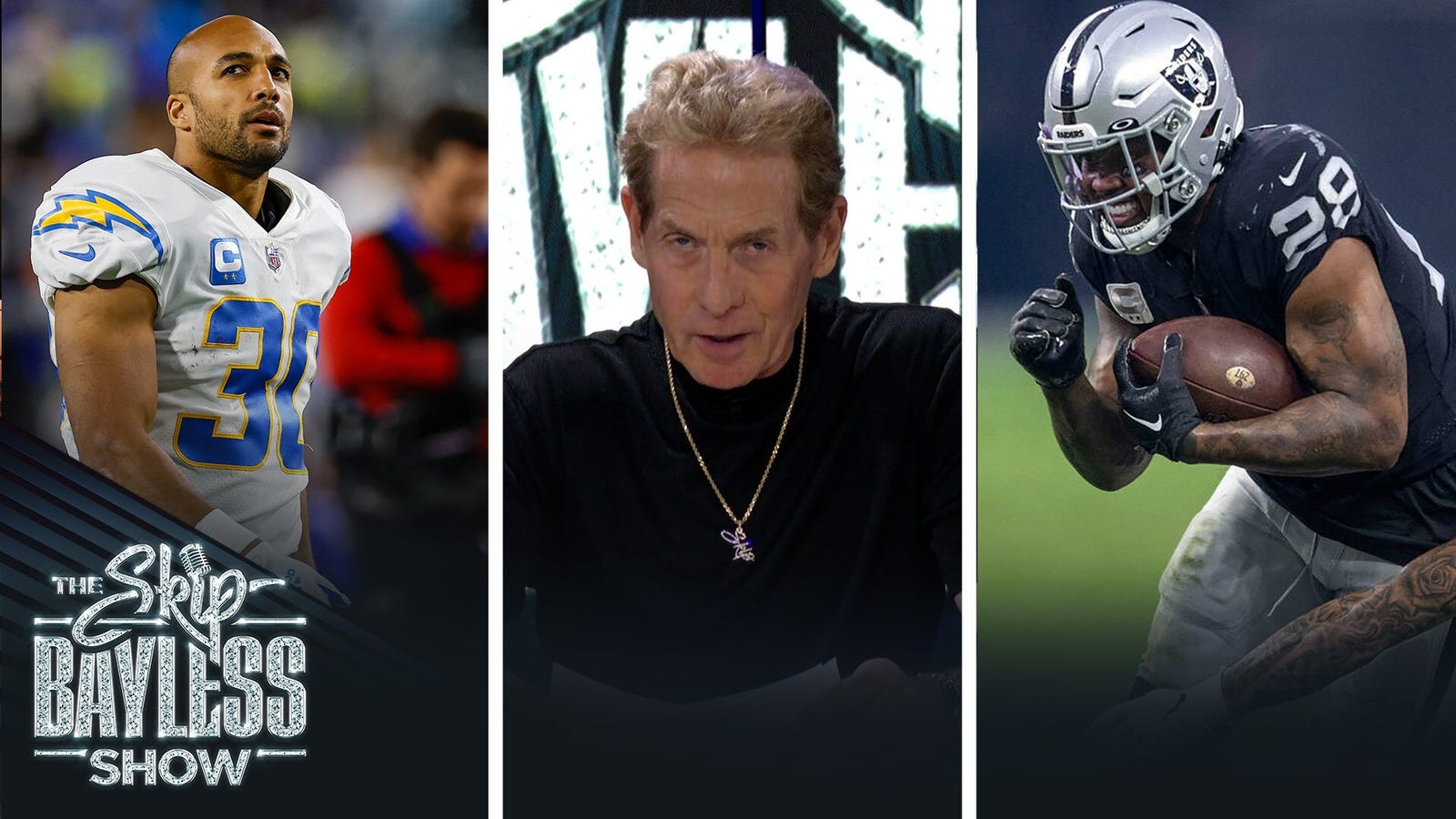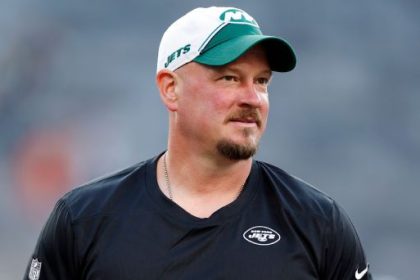FOX Sports’ Skip Bayless has a name for the Zoom call that brought several top NFL running backs together at the bidding of the Los Angeles Chargers‘ Austin Ekeler after neither the New York Giants‘ Saquon Barkley nor the Las Vegas Raiders‘ Josh Jacobs was able to secure long-term contract extensions this offseason.
“I found [it] just plain sad,” Bayless said on the latest episode of “The Skip Bayless Show,” calling the meeting “The Zoom of Doom.”
Barkley recently signed a one-year deal worth up to $11 million — essentially a renegotiated franchise tag — while Jacobs is still holding out of Raiders training camp. The failure of either to land an extension sparked debate around the NFL, and top running backs around the league have expressed concern about the devaluing of the position.
The shared outrage prompted Ekeler to organize the Zoom meeting, which reportedly also featured the Cleveland Browns‘ Nick Chubb, the Tennessee Titans‘ Derrick Henry and the San Francisco 49ers‘ Christian McCaffrey, along with Barkley and Jacobs.
ADVERTISEMENT
Bayless said he has deep appreciation for NFL running backs. He admires Ekeler in particular for not only running “with every last ounce of his heart” on the field but also for being a leader off of it. However, Bayless also said that he believes the trend of seemingly devaluing running backs has gone on a lot longer and is much more inevitable than many think.
“Today’s running backs are classically damned if they do or damned if they don’t,” Bayless said. “If they don’t run as hard, if they try harder to protect themselves, then obviously they lose at least a little of their value to their team. Yet, the harder they run, the sooner they’ll probably get hurt, or at least take so much punishment that they’ll lose some of their edge and shorten their career.
“The problem here is: as running backs over the years have evolved — have gotten bigger, stronger, faster — so do the defenders who tackle them. The human body is still very human, as we all know. It simply cannot withstand the kind of beating that these running backs take as long as they once were able to withstand it. The NFL running back’s lifespan is growing ever shorter by the moment, by the carry.”
The ever-growing popularity of pass-heavy offenses in the NFL is hardly new, and the trend puts more value on quarterbacks and wide receivers instead of running backs. But for Bayless, it goes back much further than that, to the days of Hall of Famer Earl Campbell and the prime of his career with the Houston Oilers.
As Bayless pointed out, Campbell’s first three years in the NFL were some of the most dominant in league history — he won Offensive Rookie of the Year in 1978, MVP in 1979 and Offensive Player of the Year in both 1979 and 1980 while leading the league in rushing yards each year. But in 1981, at just 26 years old, Campbell started to decline. He played only five more seasons after that with the Oilers and New Orleans Saints, failing to reach his previous heights.
“He hit the wall, and he hit it hard,” Bayless said. “He was a high-speed, high-collision running back. His shelf life was short. You can run over only so many linebackers and so many strong safeties before you use up your collision quota that you get for one life. Back then, we started calling it the Earl Campbell syndrome.”
But for the next several years, two running backs came along whose longevity — thanks in large part to their ability to avoid contact — obfuscated that trend, according to Bayless. Their names were Walter Payton and Emmitt Smith.
“Walter, at 5-foot-10 and just 200 pounds, had a lot more make-you-miss than Earl Campbell ever had,” Bayless said of the Chicago Bears legend. “Never seen anything quite like Walter Payton. It was flat-out freaky that Walter Payton lasted as long as he did, 13 seasons while staying astonishingly healthy.”
Smith, who Bayless covered during the prime of the Hall of Famer’s career with the Dallas Cowboys, was even rarer. He went on to break Payton’s all-time NFL rushing record, a record Smith holds to this day. As Bayless pointed out, Smith’s 18,355 career rushing total tops Payton’s mark by more than 1,500 yards in large part due to Smith having 571 more career carries than Payton despite averaging slightly fewer yards per carry (4.2 to Payton’s 4.4).
“Emmitt got a lot of running backs who came after him overpaid,” Bayless said. “As team after team tried and failed to draft the next Emmitt Smith, there is only one. I’m just not sure [that] we will ever, ever see another Emmitt Smith.
“As I got to know his position coach Norv Turner, the offensive coordinator of the Cowboys, Norv started talking about Emmitt’s rare what he called ‘quickness in a confined space.’ It was the polar opposite of Earl Campbell, and a far, far cry from Walter Payton. Emmitt Smith was the greatest ever at avoiding contact. … I never saw him caught from behind. But did Emmitt run out of bounds? Yes, he ran out of bounds. Did Emmitt always live to fight another play? Yep, he always did. … He lived to fight for 15 years.”
The rest of the NFL running back greats, for one reason or another, either retired early or stayed “too long”, according to Bayless. Hall of Famers Barry Sanders and Jim Brown are two examples of running back legends who were perhaps good enough to challenge Payton and Smith in the tier of greatest rushing leaders ever, but understandably “got out while the getting was good” as Bayless put it.
But no active running back has even cracked the top 40 in the all-time rushing yards rankings, with Henry the closest at No. 42 and former Cowboys star Ezekiel Elliott — who did get a lucrative contract extension from his team — at No. 43.
Elliott is currently a free agent and just turned 28 years old, but as Bayless pointed out, his rushing average has dropped every year he has been in the NFL, from a league-high 108.7 yards as a rookie to just 58.4 last season.
“I don’t know if anybody is even gonna give Zeke a shot,” Bayless said. “Surely somebody will just bring him to camp and see what he’s got left. But he’s the modern-day Earl Campbell. He hit the wall after three years.”
The Cowboys appear poised to enter next season with Tony Pollard as their top running back after signing him to the $10.1 million franchise tag this offseason. But Pollard is a question mark as well after suffering a fractured fibula in the Cowboys’ playoff loss to the 49ers in January.
“You can’t bet long-term on these running backs,” Bayless said. “I hope I’m wrong. I hope there is another Emmitt out there. I hope there is another Walter Payton out there. But [as a Cowboys fan], I also hope Jerry Jones learned his lesson.
“He made Ezekiel Elliott the highest-paid running back [a six-year, $90 million extension in 2019] for what he had done, not what he could do. He way overpaid Zeke, because he was never even close by then to what he was his first year [in the NFL].”
Bayless has one player in mind who he thinks — and hopes — could potentially fit that rare mold. A player, who, like Campbell, terrorized Bayless’ Oklahoma Sooners while starring at archrival Texas — Bijan Robinson, who the Atlanta Falcons are hoping to build around after selecting him No. 8 overall in the 2023 NFL Draft.
“I believe he’s about to elevate the Atlanta Falcons, maybe close to the way Zeke lifted the Cowboys as a rookie,” Bayless said. “Bijan [is] extremely shifty, just extremely hard to tackle. … But the point is, will Bijan have the same impact after three or four years, or after four or five years?
“That’s anybody’s guess, but history will tell you no.”
NFL trending
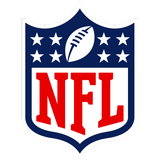
Get more from National Football League Follow your favorites to get information about games, news and more


